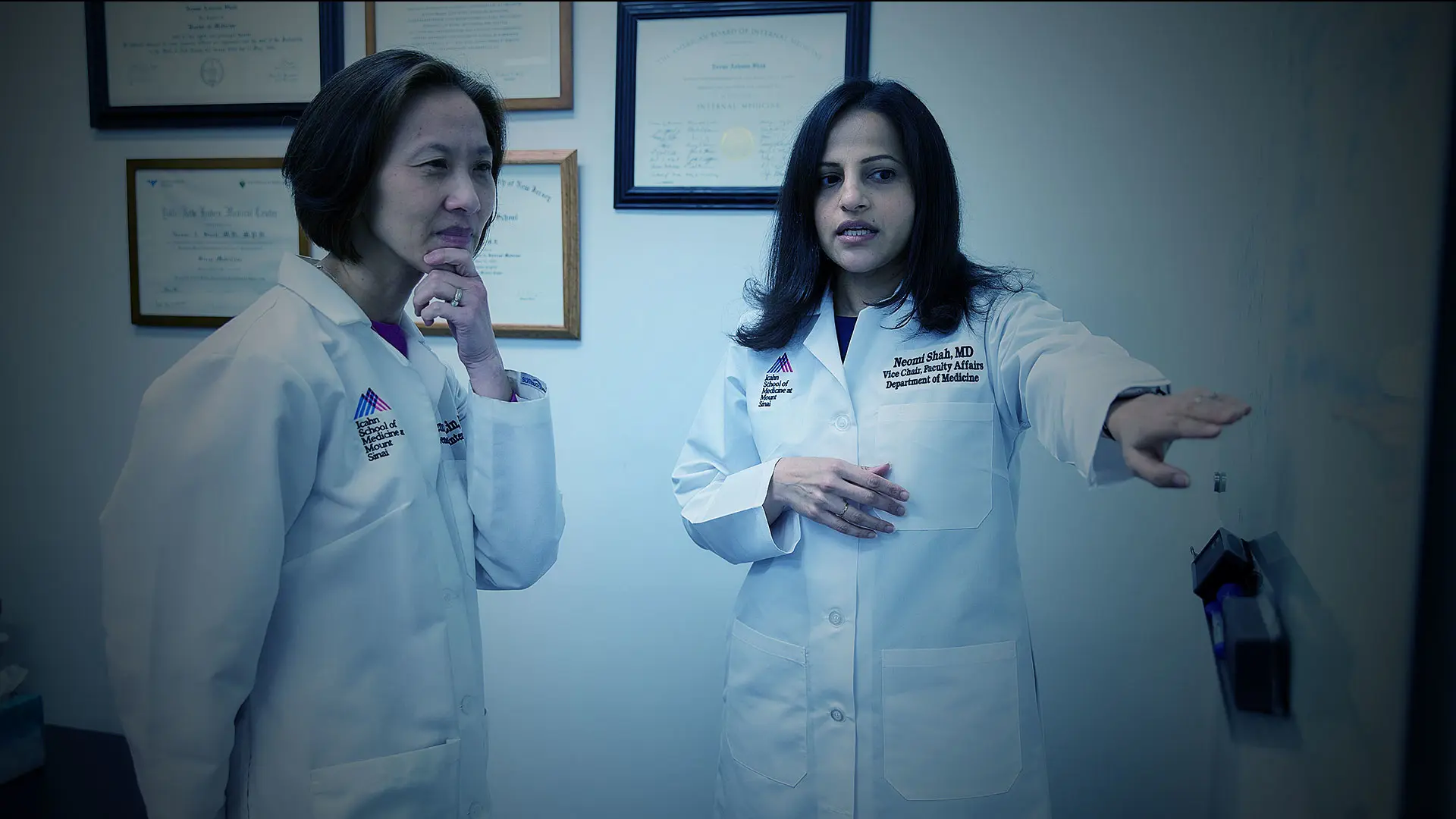All academic medical centers face a common challenge today: the grueling workloads and long hours spent in the lab, hospital, and clinic by faculty members can often lead to exhaustion and burnout.
In the Icahn School of Medicine at Mount Sinai’s Department of Medicine, the Office of Faculty Affairs is carefully attuned to drivers of burnout, as well as to such issues as career development, work-life balance, promotions, and tenure. These can affect not just the overall job satisfaction of faculty but their ability to care effectively for patients. Overlying these variables for Faculty Affairs are the imperatives of employee recruitment and retention, which the office is uniquely equipped to address for its approximately 2,000 faculty members.
“Much of my role is making the jobs of faculty easier so they’re excited about coming to work each day and making a difference in the lives of patients,” says Neomi Shah, MD, MPH, Professor of Medicine (Pulmonary, Critical Care and Sleep Medicine) at Icahn Mount Sinai and System Vice Chair for Faculty Affairs in the Department of Medicine. “Retention, in particular, is an across-the-board problem in the field of health care now, and we’re working hard to solve it by improving the workplace culture for all of our faculty.”
Serving as the champions of this effort are the members of the Faculty Well-Being Committee, who have been named to represent their respective medical divisions, advocating for and expressing at the highest levels the needs, interests, and concerns of their colleagues.
“Well-Being Champions enable us to understand what the pressing issues are among our faculty with regard to workplace culture and efficiency, burnout, turnover, and much more,” explains Krishna Chokshi, MD, MS, Assistant Professor of Medicine (Hospital Medicine) at Icahn Mount Sinai and Faculty Wellness Director for the Department of Medicine.
Dr. Chokshi is developing a significant expansion of the faculty well-being program, using data collected by each clinical department to drive new projects and strategies in such areas as enhancing work-life balance, improving faculty appreciation efforts, and increasing psychological safety among teams.
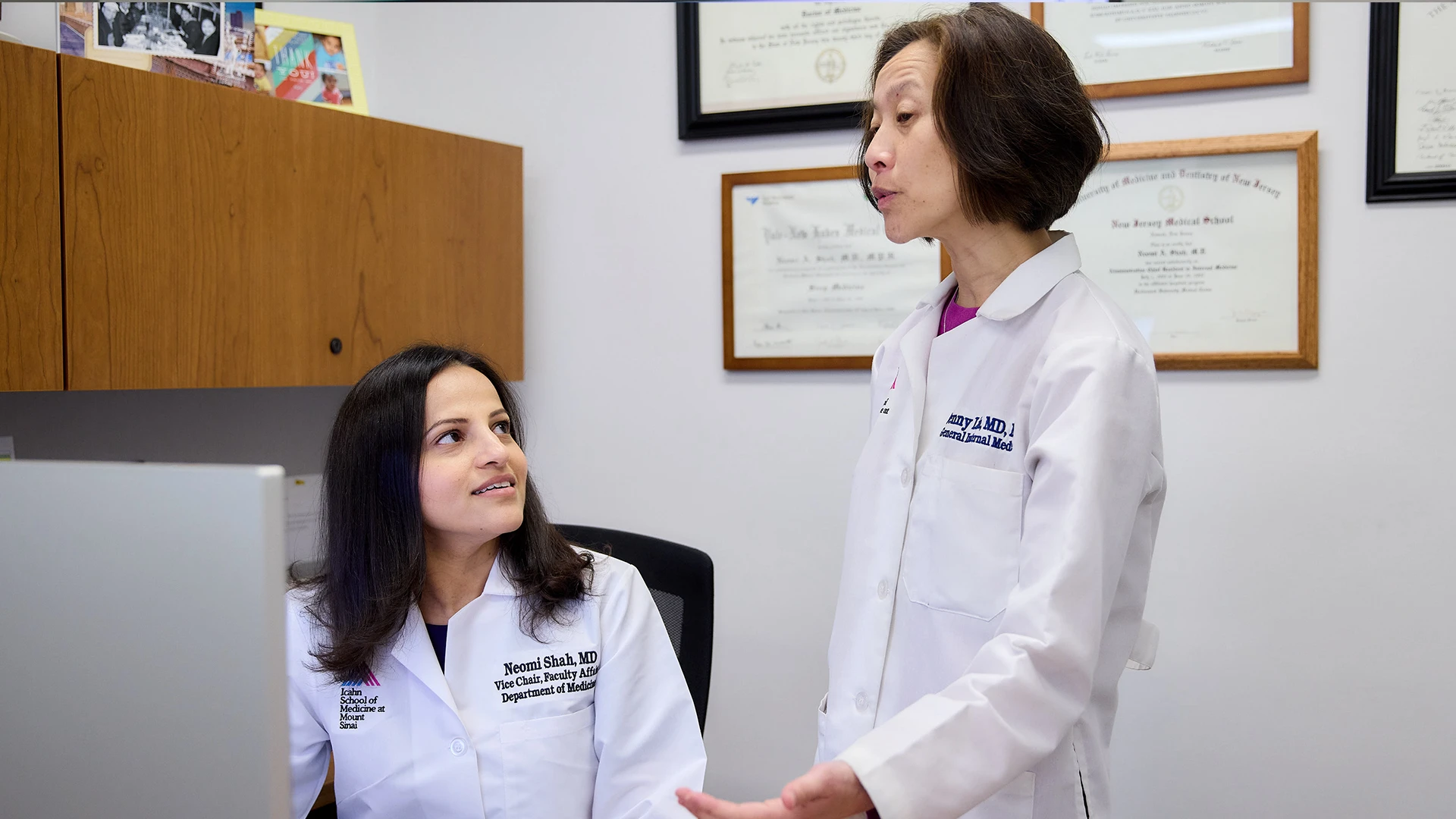
Neomi Shah, MD, MPH, with Jenny J. Lin, MD, MPH, the Department of Medicine's Director of Mentoring
Mentoring is another critical touchpoint for the Office of Faculty Affairs. Already in place is a highly developed mentorship program that helps connect junior faculty to experienced clinical, educational, and/or research experts who can help them set career goals and support them at each step along the way.
“We put a lot of emphasis on helping junior faculty at the outset identify—and then grow with—the most appropriate mentors to show we’re as committed as they are to moving their careers forward,” says Jenny J. Lin, MD, MPH, Professor of Medicine (General Internal Medicine) at Icahn Mount Sinai and System Director for Mentoring at the Department of Medicine. To make an established program even stronger, Dr. Lin has been focused on building a formal mentor-training component through seminars that encourage mentors to thoughtfully assess and then hone the skills they’ll need to become more effective coaches and advocates for the faculty members under their wings.
Ensuring that all faculty members are treated equitably when it comes to appointments, promotions, and tenure also comes under the wide-ranging umbrella of the Office of Faculty Affairs. And here, special diversity, equity, and inclusion (DEI) training has been introduced for members of the Department’s promotions committee. “We’ve recently trained our committee to view all applications in a totally transparent and equitable fashion,” notes Dr. Shah, adding that another program is being rolled out to require every faculty member in the Department to engage in three hours of DEI-related training or activities annually.
“We’re all working toward creating an environment that allows each faculty member to move up the academic ladder fairly and in tune with their career goals,” points out Dr. Shah. “And that means using all the resources available to us at Faculty Affairs to ensure our faculty remain healthy and motivated so they’re able to heal others.”
Featured
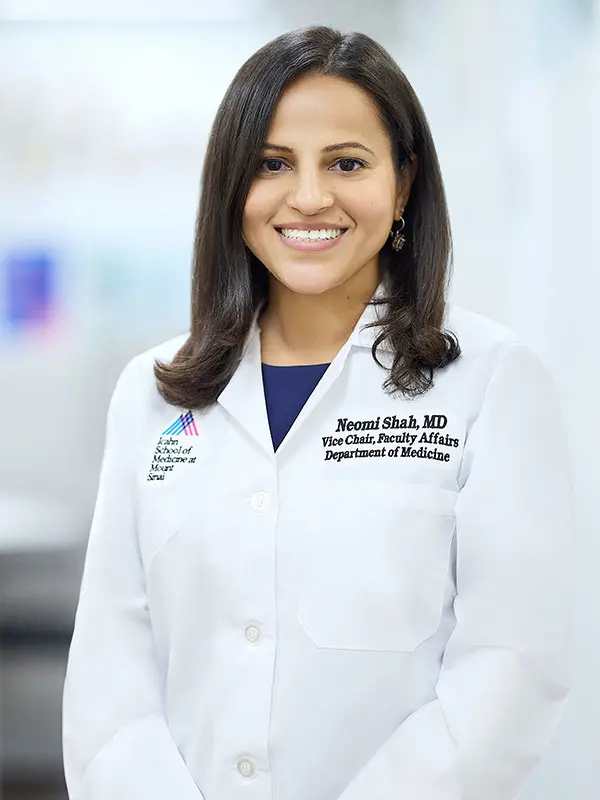
Neomi Shah, MD, MPH
Professor of Medicine (Pulmonary, Critical Care and Sleep Medicine); Vice Chair for Faculty Affairs, Department of Medicine
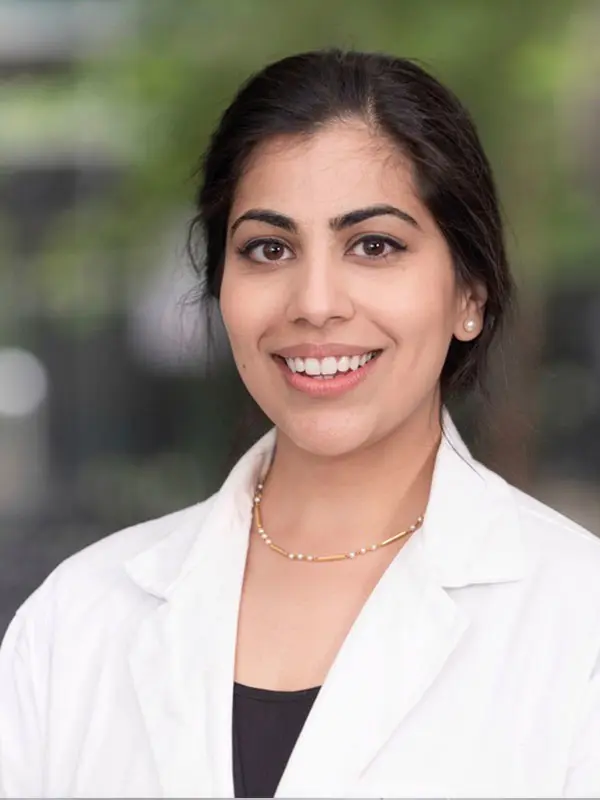
Krishna Chokshi, MD, MS
Assistant Professor of Medicine (Hospital Medicine)
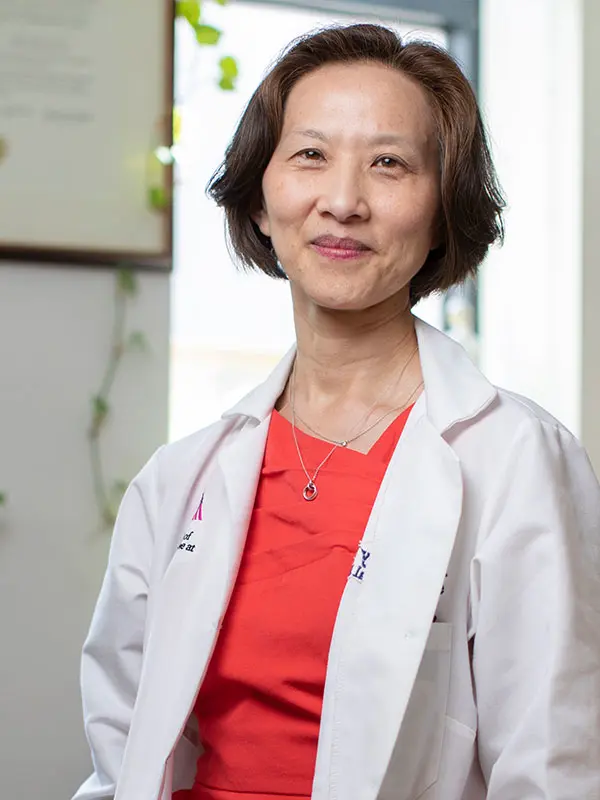
Jenny J. Lin, MD, MPH
Professor of Medicine (General Internal Medicine)
